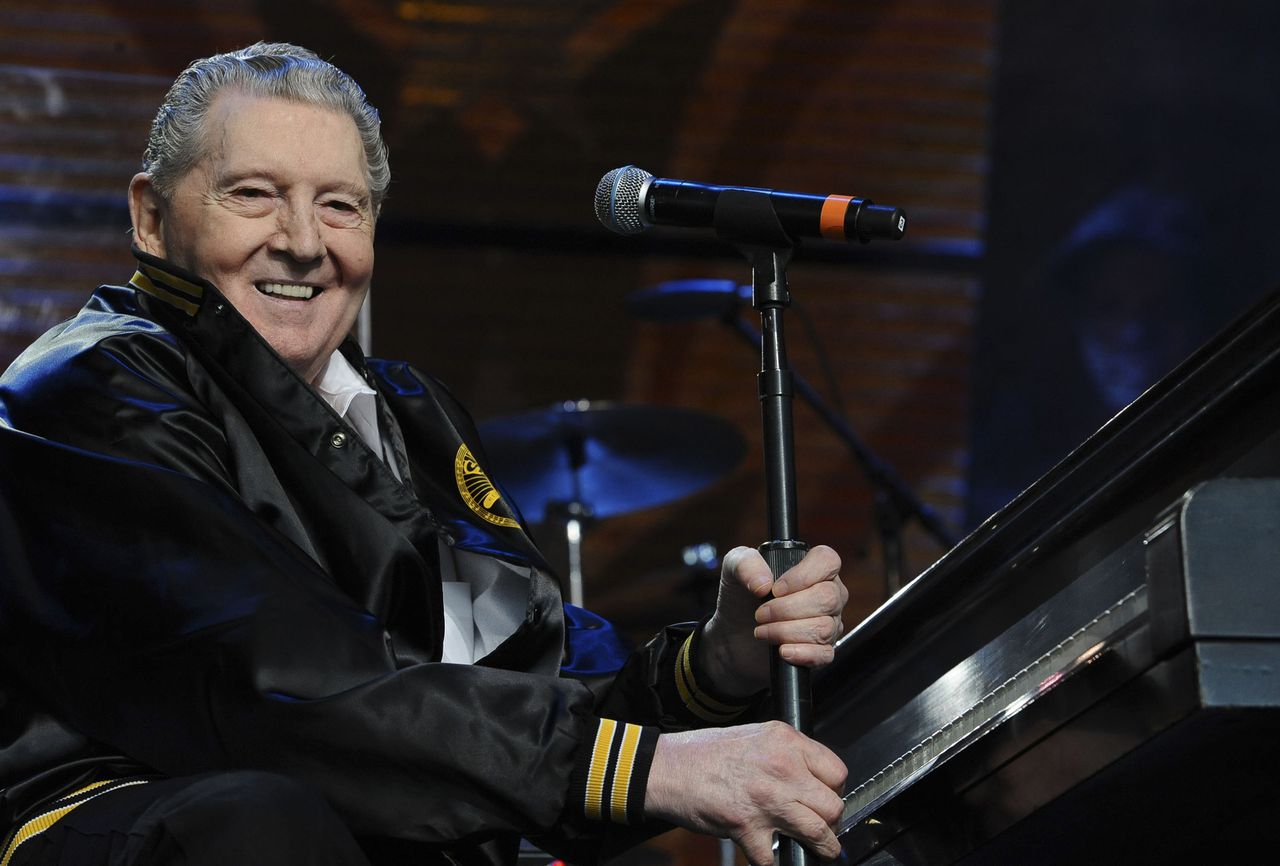Jerry Lee Lewis, ‘Great Balls of Fire’ singer and pioneering keyboard player, dead at age 87
Jerry Lee Lewis, an incendiary keyboard player and pioneering rock ‘n’ roll singer, has died at age 87.
Lewis died at home on Friday morning in Desoto County, Mississippi, south of Memphis, according to a statement from his representative Zach Farnum and reported by the Associated Press, CNN and other media outlets.
Farnum said Lewis died of “natural causes,” according to CNN, and seventh wife, Judith, was by his side when he died. Lewis “told her, in his final days, that he welcomed the hereafter, and that he was not afraid,” Farnum’s statement said.
Confirmation from Farnum on the music star’s death comes two days after an erroneous report from TMZ that said Lewis had died, which was quickly retracted.
The AP report described Lewis — nicknamed “the Killer” for his energy, talent and brash stage presence — as “the last survivor of a generation of groundbreaking performers that included Elvis Presley, Chuck Berry and Little Richard.”
Lewis’ eye-catching and rebellious style on the piano, which included pounding the keyboard, kicking away the piano bench and playing with his feet, influenced generations of musicians, including Elton John.
Born in Louisiana in 1935, Lewis rose to fame with a slew of hits recorded at Sun Records, notably “Whole Lotta Shakin’ Goin’ On” in 1957. He followed it up with the smash hit “Great Balls of Fire” that same year, along with hits like “Crazy Arms,” “Breathless” and “High School Confidential.”
During the 1960s, Lewis began singing country songs, recording number one hits like “To Make Love Sweeter for You,” “There Must Be More to Love Than This,” “Would You Take Another Chance on Me” and “Me and Bobby McGee.”
He won four Grammy awards, including a Grammy Lifetime Achievement Award and two Grammy Hall of Fame Awards, and was was inducted into the Rock and Roll Hall of Fame in 1986. He was also inducted into the Country Music Hall of Fame in 2022.
Actor Dennis Quaid played Lewis in the 1989 music biopic “Great Balls of Fire.” In 2014, Alabama author Rick Bragg wrote a biography of Lewis, titled “Jerry Lee Lewis: His Own Story.”
The book focuses on Lewis’ upbringing in Ferriday, La., and Natchez, Miss., as well as his career that “caused riots and boycotts with his incendiary performances” and his personal life that “nearly scuttled his career by marrying his thirteen-year-old second cousin — his third wife of seven,” according to HarperCollins.
“She called and said, and I’m not making this up, ‘you got any interest in doing a book on Jerry Lee Lewis?’ Probably the most interesting musician of our time, for good and bad,” Bragg said about his agent calling about an offer to write the book.
“If you’re going to write about somebody, for God’s sake, let ‘em be interesting. I said, sure, but what I should have done was gone into hiding. I should have hid under my bed or locked myself in a closet. I kind of knew it would be a difficult book to write,” Bragg said. “Some days he would tell a wonderful story and some days it was pulling teeth, but it was always there in front of me. There wasn’t a day when he didn’t say something that made a story in the book.”
“I ain’t no goody goody, and I ain’t no phony,” Lewis said in Bragg’s biography. “I never pretended to be anything, and anything I ever did, I did it wide-open as a case knife. I’ve lived my life to the fullest and I had a good time doin’ it.”
Lewis is survived by his wife, Judith Coghlan Lewis, his children Jerry Lee Lewis III, Ronnie Lewis, Pheobe Lewis and Lori Lancaster, sister Linda Gail Lewis, cousin Swaggart and many grandchildren, nieces and nephews, according to his representative’s statement.
Information on services will be announced in the coming days, the statement said. In lieu of flowers, the Lewis family requested donations be made in the singer’s honor to the Arthritis Foundation or MusiCares.
